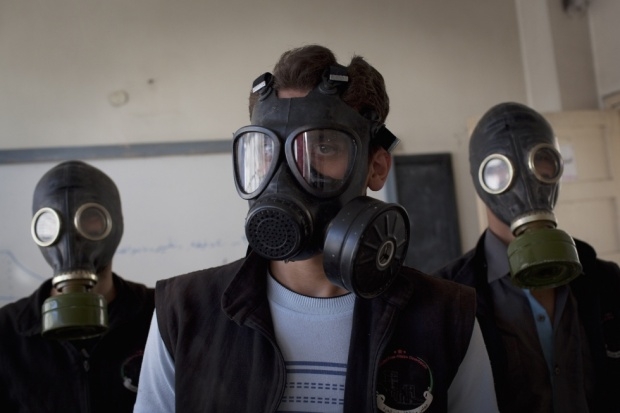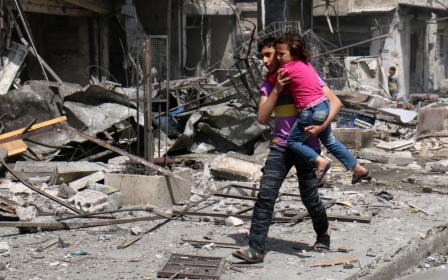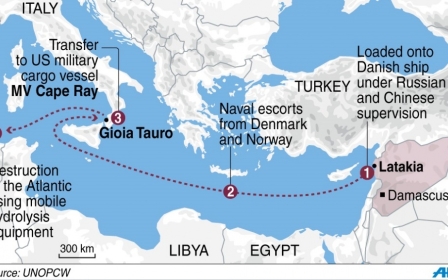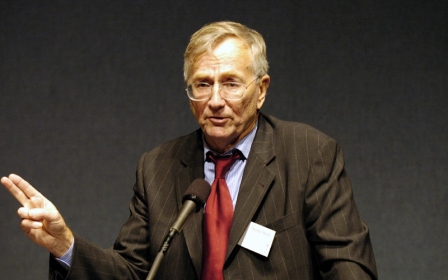Watchdog: Syria capacity to produce sarin destroyed

Syria's stocks of a key chemical used to produce the deadly nerve agent sarin have been destroyed, the mission overseeing the destruction of its chemical arsenal said.
The Organisation for the Prohibition of Chemical Weapons-UN "joint mission confirms the destruction of the entire declared Syrian stockpile of isopropanol", a statement said late on Tuesday.
"Now 7.2 percent of Syria's chemical weapons material remains in country and awaits swift removal for onward destruction. The joint mission urges the Syrian authorities to undertake this task as soon as possible," the statement added.
Under a US-Russian deal negotiated last year, Syria signed up to the Chemical Weapons Convention and agreed to hand over its entire chemical weapons arsenal by June 30 of this year.
The deal came after a sarin attack in August killed some 1,400 people in an opposition-held area near Damascus.
New MEE newsletter: Jerusalem Dispatch
Sign up to get the latest insights and analysis on Israel-Palestine, alongside Turkey Unpacked and other MEE newsletters
While the opposition blamed forces loyal to President Bashar al-Assad, his government and its Russian ally blamed the rebels.
The agreement headed off a US threat of military action.
Assad's regime now faces new allegations that it unleashed the industrial chemical chlorine on a rebel-held village in central Hama province last month.
Syria was not required to declare its stockpile of chlorine -- a toxic but weak agent -- as it is widely used for commercial and domestic purposes.
But its use for military purposes would be a breach of the Chemical Weapons Convention and the OPCW announced a fact-finding mission last month.
Moscow will veto UN resolution on ICC for Syria
Meanwhile, Moscow's ambassador said Wednesday that Russia will veto a draft UN Security Council resolution that calls for bringing Syria before the International Criminal Court.
Vitaly Churkin dismissed the French initiative, which is to be put to a vote on Thursday, as a "publicity stunt" and said it would undermine efforts to find a political solution to the conflict in Syria.
It would be the fourth time Moscow has used its veto to block resolutions since the start of the conflict, three and a half years ago.
Moscow is one of Assad's closest allies, and has provided him with diplomatic cover throughout the crisis.
Western diplomats said it was uncertain which way China would vote Thursday, but several predicted it too would veto the resolution.
Since Syria is not a signatory to the International Criminal Court, it has fallen to the UN Security Council to decide whether to refer war crimes or crimes against humanity on its territory to the court.
Faced with mounting atrocities in Syria, a number of countries are pressing for the resolution to dissuade the warring sides from engaging in new abuses.
The draft resolution denounces atrocities by government forces, by pro-government militias and by rebels fighting the regime.
Middle East Eye delivers independent and unrivalled coverage and analysis of the Middle East, North Africa and beyond. To learn more about republishing this content and the associated fees, please fill out this form. More about MEE can be found here.




